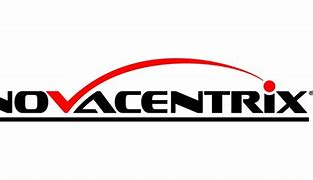We are changing our name from Blue Wolf to QIC Global
We are changing our name from Blue Wolf to QIC Global
Enhance the resilience of your management system by implementing a robust framework by ISO 22301. Recover from disruptive events without any hassles. Call QIC Global to perform third-party audits for compliance!





ISO 22301 certification standard is known for being the business continuity management benchmark. It offers a framework that supports a company’s efforts to fight against disruptive events constantly. The standard aims to determine business sustainability with the help of a set of practical clauses. These clauses help to design and implement relevant policies and processes for improving the management system. They guide in identifying the potential risk factors and preventing them from taking place. To act against the threat factors, a company must prepare precautionary measures.
Every business organization is vulnerable towards unforeseen dangers. Unwanted situations brought by natural calamities, resource hazards, technical glitches, cyber crimes, and many other risks disrupt business operations. As a result, companies often face government intervention, lose their reputation, and customer base. ISO 22301 has a comprehensive protocol, which not only helps to recover but also highlights the possible adverse situation and their outcome. Originally developed in 2012, the standard went through many amendments. The final revision was done in 2019, which focuses on issues like biohazards and cyber manipulations.
ISO 22301 certification standard supports sustainable growth. Hence, the framework it has designed promotes a positive work culture. It asks for stakeholder proactivity and participation in decision-making.

ISO 22301:2019 contains the requirements of an efficient Business Continuity Management System (BCMS). To comply, organizations are supposed to:
Most commonly found non-conformities are:



“I want to express my sincere appreciation for your support during our recent ISO audit.”


“One of the best business decisions I think we've made in the entire time we've been here in the company.”


We make auditing your ISO Standards easy. We know audits can be stressful. We’ll take the stress out.


“What seemed like a very intimidating process … was made simple … and [has] elevated our quality and safety program to another level.”


“…our staff feel comfortable talking to [the auditor]… makes you feel like you are working together”


“…Relaxed, didn't feel pressured..."


“I would just say, if you want the best and you want to things done quickly and accurately that I’d go with Blue Wolf. The service was great. Again, just to the point, very speedy, not a lot of fluff around things. We just got to work and got it done and that was the objective.”


“Your approach [to the audit process] is by far superior than any other audit I’ve ever been through. The contrast was night and day”


“There was so much going on at the time of the audit that I just wanted to go back to the audit, it was more relaxing”


“I don’t ever want to experience an audit a different way”


“If everybody could have an audit experience like this, more and more people would actually consider an ISO certification”


“I learned a whole lot from what we just went through with [the auditor] that I didn’t even understand about the standard before”


“Our experience has been that this process in working with the auditors has shown us more ways to improve internally than what we expected”


“What seemed like a very intimidating process … was made simple … and [has] elevated our quality and safety program to another level.”


“…Relaxed, didn't feel pressured..."


“…our staff feel comfortable talking to [the auditor]… makes you feel like you are working together”


“It’s a very smooth and very clear process. Definitely recommended.”


"The auditor was very knowledgeable, very understanding, very helpful."


“Would give them a 10 out of 10 and would highly recommend them to anybody looking to get ISO certification in the future.”


“I found Blue Wolf to be the Cheapest and most experienced in my eyes ‘cause all of the price ranges were higher than Blue Wolf, so I stuck with Blue Wolf. Their quality was very high as well.”


“The service provided by Blue Wolf has been second to none.”


“Blue Wolf streamlined the entire process. They were very easy to communicate with and work with, very cordial, and just an all-around good experience.”


“Blue Wolf makes a great partner for not only getting but maintaining your ISO certifications.”
Quality Management Systems
Environmental Management Systems
Occupational Health and Safety Management Systems
Information Security Management Systems
The Information Technology (IT) Service Management System Standard for earning global recognition!
Global Quality Management Standard for Medical Devices
Energy Management System efficiency
Food Safety Management Systems
Anti-Bribery Management System
Business continuity management system
The Privacy Management Standard for corporate documents
The education management standard for a better learning experience!